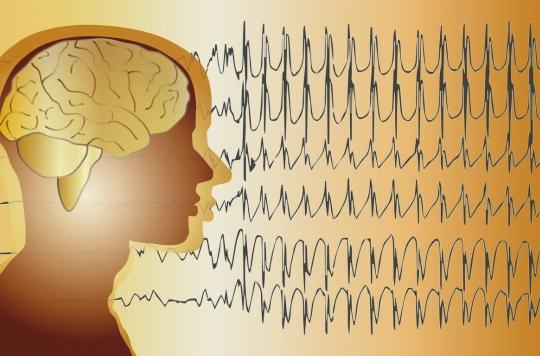On the occasion of the world day, Christophe Lucas, president of the Epilepsie-France association, testifies about Lafora disease, from which his 18-year-old son suffers.

- It is estimated that 600,000 people suffer from epilepsy in France.
- Lafora disease is a very rare form of epilepsy, affecting barely one in a million people in the West.
Why Doctor – What kind of epilepsy does your 18 year old son have?
Christopher Lucas- My son suffers from Lafora disease, an extremely rare type of epilepsy. It is a degenerative epilepsy, which usually begins with seizures in early adolescence. Gradually, other types of epilepsy are added to the first. The child, drug-resistant, is quickly put under tri, even quadri-therapies.
The life expectancy of Lafora disease is 7 to 10 years after the first attack. At present, it is a deadly epilepsy, although research is making great strides towards a new treatment.
What is the origin of Lafora’s disease?
It is a genetic disease, due to the mutation of a gene, which occurs by chance.
How long have you known that your son has Lafora disease?
We only got the definitive diagnosis last May, thanks to a genetic test. Lafora’s disease is an epilepsy that is difficult to detect because it hides behind other epilepsies.
What symptoms is your son suffering from?
At 11, my son had a first tonic-clonic seizure, with loss of consciousness. He then had few seizures for three years.
For two and a half years, it has been accelerating and degenerating a little more every month. In the last phase of Lafora’s disease, the child can no longer eat, walk or talk. My son is now fed through a tube, and we will soon be referring him for palliative care.
What are the consequences of your son’s illness on your daily life as parents?
My wife has not returned to work since the diagnosis. Until recently, my son, who has been out of school for two years, was cared for at home. We then obtained a place in a specialized foster home, where we take turns all day with my wife, to be by her side.
A diagnosis of classic epilepsy is already complicated to manage for parents, who are full of misconceptions via the internet. But for Lafora’s disease, it’s even harder, because we know the end.
Faced with this extremely difficult situation, are you able as parents to find support?
The association that I chair helps us a lot. The Pitié Salpétrière medical team also supports us, and we are followed psychologically. In addition, we meet once a month with parents from all over the world confronted with Lafora disease, to discuss our children.
Do you think there are things to improve regarding Lafora disease in France?
As it is a rare disease, management solutions outside the hospital are not suitable.
What about epilepsy more generally?
The general public should be better informed about epilepsy. Today, many people do not know what it is, or have preconceived ideas about the disease: 80% of French people think, for example, that epilepsy is a problem linked to video games.
Moreover, we do not take enough measure of the daily complications caused by this disease. Worlds can collapse because of epilepsy, because all activities must be made secure: for example, you cannot no longer drive as you want, nor swim without a life jacket. 
.
















